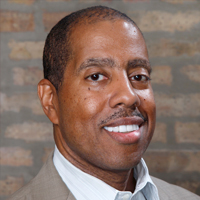
When retail-focused financial advisors tout their or their firm’s assets under management, it does not convey that we care about our clients. AUM doesn’t represent how many clients we care for or how many accounts we manage for them.
We may manage a holistic financial plan for clients that includes long-term care, life insurance, Social Security and pension maximization, immediate annuities or deferred income annuities and more. AUM misses everything but investments we manage, but many financial advisors do so much more.
I believe that using AUM in marketing can be misleading. Some financial professionals use AUM to suggest profitability or the size of their client base. Some unsuspecting prospects or clients may hear the phrase “assets under management” and incorrectly conclude that the number indicates the investing know-how of the advisor and their firm.
Showing that we care about our clients’ outcomes requires a new term — “lives under care.” If a married couple comes to us and wants help for their three children’s educations as well as their retirement, then we are actually caring for five lives! When grandparents ask us to help them leave money for their two children and five grandchildren then we are caring for nine lives; 11 if you include the spouses.
Financial advisors got to this convoluted place because we adopted language from mutual fund and ETF managers. They don’t see their channel partners’ clients — our clients — as people they are trying to specifically help. They have a prospectus and a way of operating and are solely focused on investing assets. They do not make alterations for any specific client.
Special Considerations for Those 50+
If we as financial advisors are specifically targeting those who are 50+, then we are focused on helping individuals and their loved ones. Their life situations are not like they were years ago. Many people are having children later in life. In my case, my youngest will be an undergrad when I’m 65. Many people who are 50+ find themselves sandwiched between needing to help young adult children as well as aging parents. These situations call for financial life planning more than they call for investing money. In this new environment, we must move from an AUM mentality to a “lives under care,” or LUC, mentality.
For example, a highly aggressive mutual fund won’t be appropriate for someone that has saved a lot and only needs to take moderate market risk. Likewise, we may have an amazing strategy for being in all stocks, but it would not be appropriate for this client’s retirement income needs.
I once had a conversation with one of my bosses who felt a portfolio that I built for a prospect did not show a high enough return. I responded that in this prospect’s case, it would be imprudent, given how much they had saved. They had not asked for an aggressive portfolio, nor did they need to take on more investment risk to reach their financial goals. The boss was convinced that in order to impress the prospect we should be showing how much money we could make them. In this case, showing we cared about the prospect meant understanding their needs and goals and matching the appropriate investment strategy.
Double Duty
A fiduciary advisor has a duty of loyalty and a duty of care. They don’t have a duty of assets under management. In fact, AUM suggests we only deal with money, not people. This assets mindset is more in line with what one might expect of an institutional investor. This does not speak to the needs of the individual households that make up the retail segment. AUM doesn’t suggest you “say you help retail clients by educating them and positively influencing their behaviors.”
To be focused on lives under care requires more than a Series 65 registration or some number of years in the industry. It requires a different mindset and credentials such as the CRPC, CFP, CFSLA, CDFA, RICP and RMA.
Let’s drop AUM and adopt an LUC mindset. “What doesn’t get measured doesn’t get managed.” What’s your LUC?
Additional Reading: Why Subscription-Based Financial Planning Works
James Brewer, CDFA, AIF, CFSLA, CFP® is the founder of Envision Wealth Planning and is regularly featured in the media for his financial expertise and support of socially responsible investing. His favorite part of being a financial planner is getting to meet new people throughout the Chicagoland area, and helping them achieve their hopes and dreams. Connect with James on LinkedIn.







